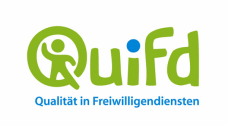Montag, 24. April - Freitag, 28. April 09:30 Uhr - 15:00 Uhr
Disaster Risk Management and Climate Change Adaptation Mainstreaming - SLE TRAINING ONLINE COURSE
You will not only know the concept, major elements and state-of-the-art technologies of disaster risk management – with a focus on disaster risk reduction (DRR) –, you will also be able to assess the context in which risk management and reduction take place and how to coordinate with different stakeholders. You will know how to select vulnerable systems of interest (households, economic sectors, regions) as beneficiaries of risk management programs in a disaster risk based approach, how to identify technical means of interventions in the light of their appropriateness related to different types of climate-related disasters and how to integrate risk reduction into long-term development efforts, while taking climate change aspects into account and therefore contributing to long-term resilience of communities.
Benefits:
The aim of the training course is to increase your knowledge and skills on how to assess and to reduce disaster and climate risks for projects, plans, and policies. By the end of the training course, you will be able to critically analyse risk scenarios and to develop and apply appropriate risk reduction measures.
The specific objectives of the training course are therefore as follows:
- To increase your understanding of disaster and climate risk concepts and their context
- To enhance awareness of risk assessment processes and tools for planned and existing projects, plans, and policies
- To increase your understanding of risk reduction and adaptation measures and integration into projects
Key topics:
- Risk assessment and risk mapping
- Means of disaster prevention, mitigation and preparedness, and adaptation to climate change related to natural hazards, such as drought, landslide, flood and cyclone
- The social, economic, environmental and political context of climate adaptation and disaster risk management programs
- Different options of fostering resilience among vulnerable communities, sectors, and regions related to nature-related disasters and climate change
- Ecosystem-based adaptation (EbA) and disaster risk reduction (DRR)
- Mainstreaming DRR and adaptation in humanitarian aid and development cooperation
- Organizational development with a focus on adaptation and DRR
Course Programme
Link to previous course programme (2022)
What does live online training mean?
Our online trainings are not pre-recorded training videos, webinars for large audiences or self-paced e-learning courses. They are virtual live trainings delivered by our trainers in real-time, focusing on the interaction of a small group of remote participants. Just like our face-to-face trainings, these virtual classrooms aim at tailoring the discussions and learning experiences to the training needs of the participants.
Requirements: to attend our live online trainings, a reliable high-speed internet connection and a computer or laptop running Windows or iOS are required (including audio and video). The Humboldt-Universität of Berlin uses the videoconferencing platform Zoom for virtual classrooms as well as digital tools. We strongly recommend an external headset for better sound quality.
Course Methods
The training is based on the Harvard Case Method, which supports adult learning from experience: Introduction to the topic – Group exercise with a given case – Presentation of results – Reflection on relevance to participants’ needs and future applications. This method is complemented by interactive exercises which integrate emotions and movement into sustainable learning processes and expert presentations.
Target Group
The training is designed for professionals working in international cooperation, policy advice, project formulation, or related areas. Ideally, participants already have first plans or ideas to use course content within their working context. Good command of English is mandatory.
| Veranstalter: | Seminar für Ländliche Entwicklung (SLE), Humboldt-Universität zu Berlin |
| Veranstaltungsadresse: | online |
| Veranstaltungsort: | online |
| Kontakt: | sletraining@hu-berlin.de |
| Anmeldung: | https://eveeno.com/sledrr |
| Teilnahmegebühr: | 1.100 Euro |
